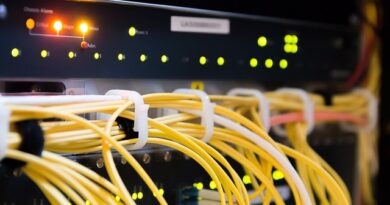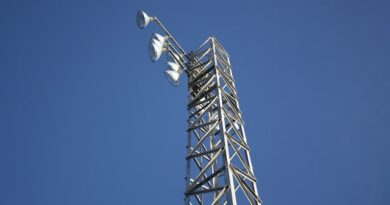Exposed: Shocking Discoveries from Recent Electrical Safety Audits
Introduction
Electrical safety is a paramount concern in our modern society. The importance of maintaining safe electrical systems cannot be overstated. Recent electrical safety audits have shed light on some shocking discoveries, revealing potential risks and hazards that may compromise the safety of individuals and properties. In this article, we will delve into the key findings from these audits, exploring the hidden dangers and providing insights on how to mitigate risks. Let’s uncover the alarming revelations and empower ourselves with knowledge to ensure electrical safety in our everyday lives.
Table of Contents
- The Importance of Electrical Safety
- Common Electrical Hazards
- Faulty Wiring
- Overloaded Circuits
- Outdated Electrical Panels
- Shocking Discoveries from Recent Electrical Safety Audits
- Aging Electrical Infrastructure
- Lack of Ground Fault Circuit Interrupters (GFCIs)
- Insufficient Surge Protection
- Inadequate Fire Safety Measures
- Mitigating Electrical Safety Risks
- Regular Inspections and Maintenance
- Upgrading Electrical Systems
- Installation of GFCIs
- Surge Protection Devices
- Fire Safety Precautions
- The Role of Professionals in Ensuring Electrical Safety
- Conclusion
- FAQs
The Importance of Electrical Safety
Electrical safety is crucial for the well-being of individuals and the preservation of properties. Whether at home, in the workplace, or any other environment, electrical systems must be properly installed, maintained, and regularly inspected to ensure safety. Negligence or oversight in electrical safety can lead to devastating consequences, including fires, electrical shocks, and property damage.
Common Electrical Hazards
Before diving into the revelations of recent electrical safety audits, let’s explore some of the common electrical hazards that pose a risk to our safety.
Faulty Wiring
Faulty or deteriorating wiring is one of the leading causes of electrical accidents. Aging wires, incorrect installations, or damaged insulation can result in short circuits, electrical fires, or electrocution. It is vital to address any signs of faulty wiring promptly to prevent hazardous situations.
Overloaded Circuits
Overloading circuits by plugging in too many devices can strain the electrical system and increase the risk of fires. Each circuit has a designated capacity, and exceeding it can lead to overheating and electrical failures. Proper load management and the use of power strips with surge protectors can help prevent overloading.
Outdated Electrical Panels
Outdated electrical panels, such as those with fuses instead of circuit breakers, may not provide adequate protection. These panels are unable to handle the power demands of modern appliances and electronics, posing a risk of electrical overloads and fires. Upgrading to modern electrical panels is essential for enhanced safety.
Shocking Discoveries from Recent Electrical Safety Audits
Recent electrical safety audits have uncovered several alarming issues that demand immediate attention. These findings highlight potential dangers lurking within our electrical systems.
Aging Electrical Infrastructure
Many buildings, especially older ones, have outdated electrical infrastructure. Aging wiring, deteriorated insulation, and outdated components can significantly increase the risk of electrical failures, fires, and other hazards. The audits have revealed the urgent need for comprehensive assessments and upgrades to ensure safety.
Lack of Ground Fault Circuit Interrupters (GFCIs)
Ground Fault Circuit Interrupters (GFCIs) are essential safety devices that protect against electrical shocks and ground faults. However, the audits have unveiled a concerning lack of GFCI installations, particularly in older buildings. GFCIs should be installed in areas where water and electricity are present, such as kitchens, bathrooms, and outdoor outlets.
Insufficient Surge Protection
Power surges can occur due to lightning strikes, electrical faults, or utility grid fluctuations. Without adequate surge protection, sensitive electronic devices can be damaged or destroyed. The audits have shown that many properties lack proper surge protection measures, leaving valuable equipment vulnerable to power surges.
Inadequate Fire Safety Measures
Electrical fires pose a significant threat to both life and property. The safety audits have revealed inadequate fire safety measures, including insufficient fire alarms, outdated fire suppression systems, and poorly maintained emergency lighting. Proper fire safety protocols and regular inspections are vital to minimize fire risks.
Mitigating Electrical Safety Risks
Addressing the issues highlighted in the electrical safety audits is crucial for safeguarding against potential risks. Here are some measures that can be taken to mitigate electrical safety hazards:
Regular Inspections and Maintenance
Periodic inspections by qualified electricians are essential to identify and address potential electrical hazards. Regular maintenance ensures that electrical systems remain in optimal condition, minimizing the risk of failures and accidents.
Upgrading Electrical Systems
Outdated electrical infrastructure should be replaced or upgraded to meet modern safety standards. This includes rewiring, upgrading panels, and ensuring proper grounding. Professional electricians should handle these tasks to ensure compliance and safety.
Installation of GFCIs
Installing GFCIs is an effective way to protect against electrical shocks and ground faults. These devices quickly cut off power in the event of a fault, preventing potentially life-threatening situations. GFCIs should be installed in areas where water and electricity can come into contact.
Surge Protection Devices
To safeguard electronic devices from power surges, surge protection devices should be installed. These devices divert excess voltage, protecting sensitive equipment from damage. Installing surge protectors at the main electrical panel and individual outlets provides comprehensive protection.
Fire Safety Precautions
Fire safety should be a top priority. This includes regular testing and maintenance of fire alarms, proper placement of fire extinguishers, and maintaining clear escape routes. Adequate training on fire safety procedures and evacuation plans should also be provided to occupants.
The Role of Professionals in Ensuring Electrical Safety
Professional electricians play a vital role in ensuring electrical safety. Their expertise and knowledge are invaluable in conducting thorough inspections, identifying risks, and implementing necessary safety measures. Engaging qualified electricians is essential for maintaining electrical systems and minimizing potential hazards.
Conclusion
The findings from recent electrical safety audits have highlighted critical areas of concern. Aging electrical infrastructure, lack of GFCIs, insufficient surge protection, and inadequate fire safety measures pose significant risks. By addressing these issues through regular inspections, upgrades, and the implementation of safety measures, we can protect ourselves, our properties, and our loved ones from potential electrical hazards. Prioritizing electrical safety is crucial for a secure and worry-free living environment.
FAQs
- How often should electrical systems be inspected?
- Electrical systems should be inspected at least once every five years or as recommended by a qualified electrician. Regular inspections help identify potential hazards and ensure the safety of the electrical system.
- Can I upgrade my electrical system myself?
- Upgrading an electrical system requires professional expertise and knowledge. It is recommended to hire a qualified electrician to ensure compliance with safety regulations and proper installation.
- What are the signs of faulty wiring?
- Signs of faulty wiring include flickering lights, frequently tripped circuit breakers, burning smells, and discolored outlets. If you notice any of these signs, it is crucial to have a professional electrician assess the wiring.
- Do surge protectors need to be replaced?
- Surge protectors have a limited lifespan and




